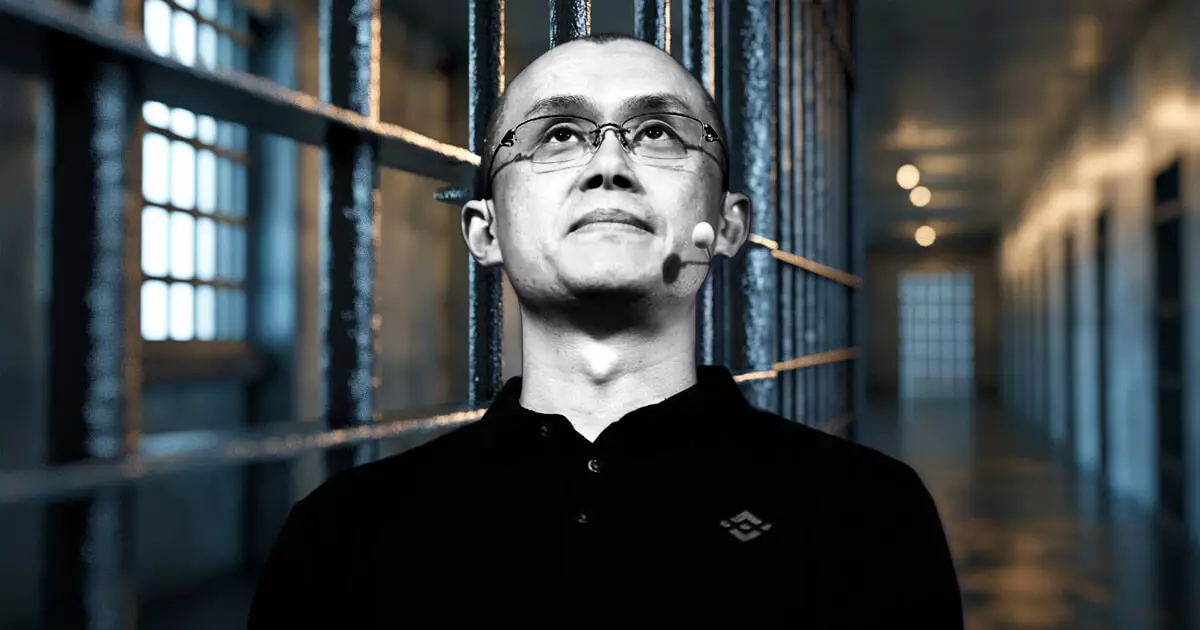Changpeng Zhao, the co-founder of the world-renowned cryptocurrency exchange Binance, is nearing the end of his legal journey within the U.S. penal system, with a release date projected for September 29. Serving a four-month sentence, Zhao has recently been transferred to the Long Beach Residential Reentry Management (RRM) facility in California, typically a precursor to full release. This shift marks a significant transition from incarceration to a focus on reintegration into society, although the repercussions of his legal challenges loom large over both his personal and professional futures.
Zhao’s legal plight ignited in November, culminating from serious accusations leveled against both him and Binance regarding violations of U.S. federal laws. The heart of these allegations revolved around Zhao’s purported negligence in establishing an adequate anti-money laundering framework, contravening the Bank Secrecy Act. Questions regarding Binance’s activities surfaced, particularly concerning its engagement with transactions closely tied to illicit activities, including interactions with citizens from sanctioned countries such as Iran.
As part of a significant settlement, Binance faced an eye-popping $4.3 billion financial penalty, while Zhao personally agreed to a $50 million payment, shaking the foundations of trust that a lot of users had in the exchange. His decision to step down as CEO of Binance highlighted the gravity of the situation; however, Zhao retained an estimated 90% ownership in the firm, indicating a continued vested interest in its operations, despite no longer holding the reins.
While Zhao’s legal challenges may soon conclude, the storm continues to brew over Binance. The U.S. Securities and Exchange Commission (SEC) has recently ramped up its scrutiny. An amended complaint has underscored allegations that Binance has flouted federal securities laws. This ongoing case posits that Binance’s active involvement in the crypto market includes republishing information from various issuers, culminating in practices that the SEC now deems questionable under the regulatory framework.
Notably, the SEC highlighted that the Binance token, known as BNB, was classified as a security, raising critical questions about the implications for investors and the market at large. They asserted that there existed an expectation among various stakeholders, including customers and investors, for BNB’s value to ascend, primarily due to initiatives led by the platform.
The repercussions of Zhao’s legal issues transcend personal liability, potentially casting a shadow over the entire cryptocurrency industry. Regulatory bodies are increasingly willing to scrutinize operations of major exchanges, amplifying the urgency for compliance in a sector characterized by innovation yet riddled with controversy. As Binance navigates these turbulent waters in the aftermath of Zhao’s legal proceedings, the broader dialogue regarding regulation, transparency, and ethical practices in cryptocurrency will likely intensify. Stakeholders must prioritize robust compliance mechanisms to cultivate trust in a market that is still in its maturity phase.
Zhao’s precarious dual role as an innovator and a subject of legal examination epitomizes the tumultuous landscape of cryptocurrency today. As he prepares to emerge from the clutches of U.S. law, the crypto world watches keenly, anticipating what the future holds for him and Binance amidst evolving regulations and scrutinized practices.



















Leave a Reply